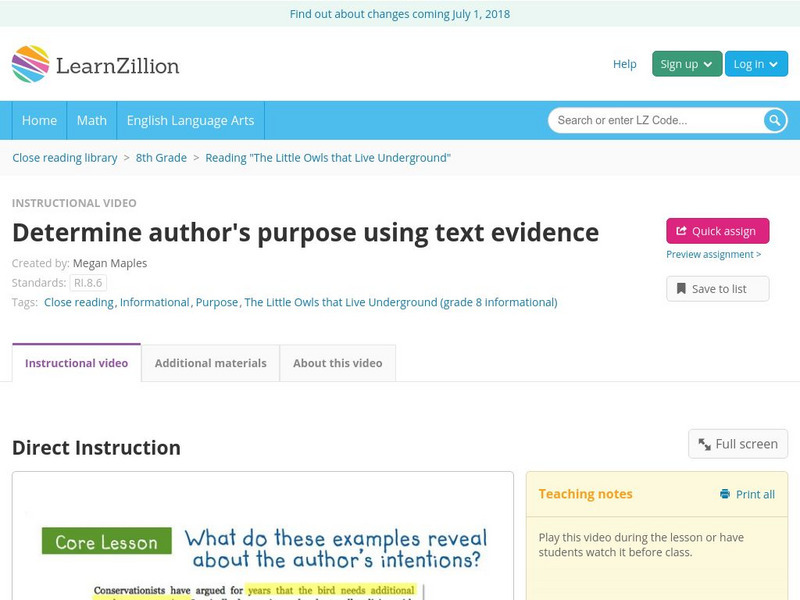Hi, what do you want to do?
PBS
Top 4 Tips to Spot Bad Science Reporting
How can people make good decisions about their health when modern news reporting is so unreliable? Using an informative video resource, viewers discover the acronym GLAD. They learn to get past the clickbait, look for crazy claims,...
PBS
Why Do Our Brains Love Fake News?
Fake news is all about the dorsolateral prefrontal cortex versus the orbitofrontal cortex. Huh? Get the facts, the real deal, with a short video that explains clearly and succinctly what's going on in our brains that leads us to listen...
PBS
Fact vs. Fiction in the Media
How can people tell the difference between real news and inaccurate stories? Viewers watch a video about discerning fact from fiction in news sources. Next, pupils use a set of discussion questions to further analyze the topic.
Sophia Learning
Sophia: Common Issues With Conclusions
This video lesson focuses on common issues with conclusions such as simply restating the thesis and summarizing the research. Starting with a simple conclusion, she shows its issues and discusses how to make it show the impact of what...
Sophia Learning
Sophia: Judgements
This video lesson focuses on judgements by first defining it as arriving at an opinion or evaluation about something. Then it looks at the difference between evaluation and judgement, and the place of judgement in writing. Real Player is...
Sophia Learning
Sophia: Argumentative Papers
This video lesson explains the purpose of argumentative papers and the construction of paper as follows: thesis states claim, evidence supports claim, identify counterargument, evidence refutes counterargument, and conclusion restates...
New Zealand Ministry of Education
Te Kete Ipurangi: Thinking and Reading Comprehension
Julie Cowan from Willowbank School explains how she supports students to become strategic, reflective, and metacognitive readers and thinkers.
Imagine Learning Classroom
Learn Zillion: Determine Author's Purpose Using Text Evidence
In this lesson, you will learn how to determine the author's purpose by asking, "Why did the author write this?" and using text evidence to prove his purpose. [10:04]
Other
What Is Critical Thinking and Why Is It Important?
One of the thinking skills for the 21st century is that of critical thinking. This site defines what critical thinking is and explains why it is important in today's world.
Imagine Learning Classroom
Learn Zillion: Draft a Concluding Paragraph for an Argumentative Essay
In this lesson, you will learn how to draft a concluding paragraph for your essay by summarizing your argument, identifying a solution, and stating the consequence of inaction. [4:48]
Imagine Learning Classroom
Learn Zillion: Order Reasons and Counterargument to Best Prove Claim
Students will organize the reasons and counterargument to best prove claim. [6:42]
PBS
Pbs Learning Media: Argumentative Essay: Citing and Analyzing Evidence
In this lesson, students will learn the importance of citing text evidence to build an argument essay.
Curated Video
You Tube: Making Inferences
Catchy song by Jake Scott that explains how to infer and use textual evidence to support your conclusions. [2:36]















